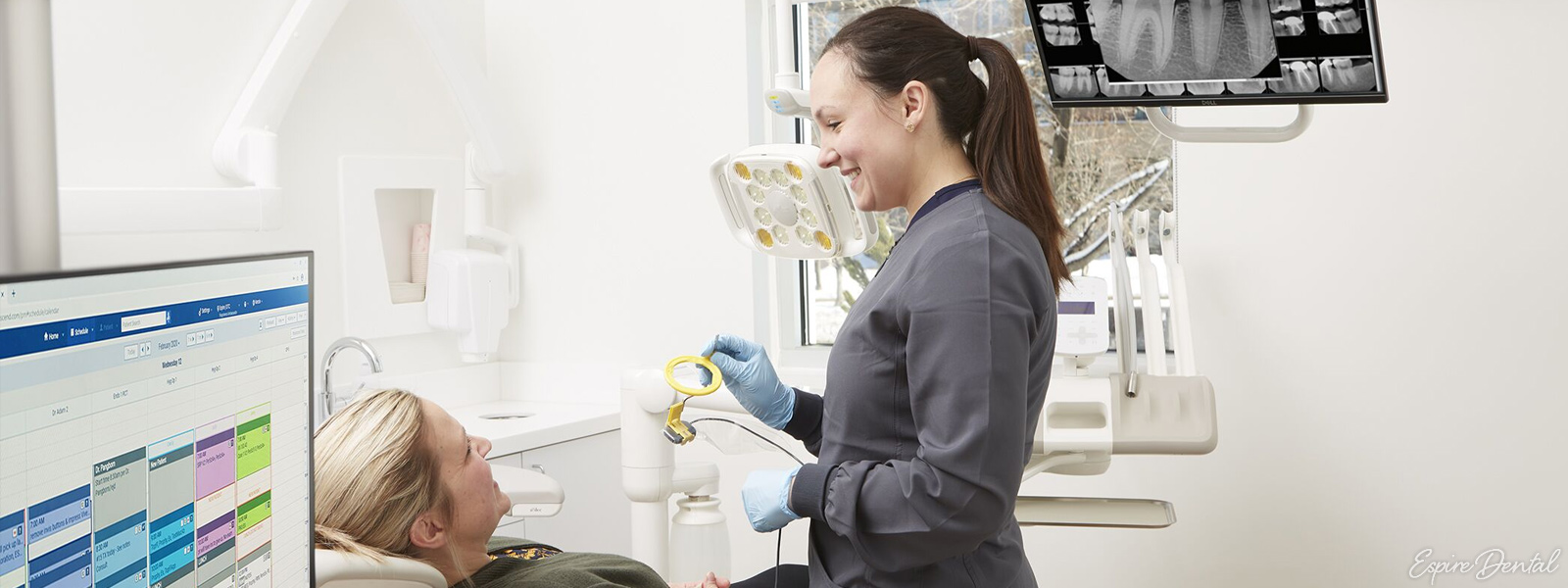
An abscessed tooth can be painful or completely pain-free, but it always requires treatment and professional diagnosis to fully disappear.
Dental abscesses are relatively common, but they aren’t well understood. Abscesses can occur at any age, so it’s important for adults and children alike to know the symptoms of an abscessed tooth.
An abscess is a type of infection that occurs when a pocket of your mouth fills with pus. Abscesses usually occur in your gums next to a tooth, or at the root of a tooth below the surface. If left untreated, dental abscesses can spread from your teeth to your jaw, neck, and even other parts of your body — causing potentially life-threatening health complications.
Do I have a dental abscess?
Because dental infections can spread into other parts of your body, you need to nip dental abscesses in the bud.
The first step in treating a dental abscess is knowing you have one. The telltale signs of an abscessed tooth are swelling or redness in your gums, which might be sensitive or painful in a specific area. A pimple-like bump on your gum can indicate that you have an infected abscess — especially if pus comes out when you put pressure on the bump.
An abscess doesn’t always look like an infection, though. Sometimes abscesses can manifest as a toothache, or it might show no symptoms at all.
How do abscesses form?
Your teeth are full of sensitive tissue that can become easily infected if it is exposed to the bacteria in your mouth. Abscesses often occur if your teeth become chipped, cracked, or exposed in a way that bacteria can enter the core of your teeth.
Some of the most common causes of dental abscesses include sports injuries, falls, and other high-impact events that might cause a crack in your teeth. Tooth decay and cavities can also lead to holes in your teeth that can lead to abscess formation.
Because early-stage dental abscesses may show no symptoms, you should visit a dentist right away if you experience a high-impact injury that might have left a crack in one of your teeth. Even a tiny, invisible crack in your tooth can lead to an abscess.
How can I prevent a dental abscess?
The best way to prevent a dental abscess is to avoid the two main causes: dental injuries and tooth decay.
To prevent injuries to your mouth, make sure to wear a mouthguard when you are playing contact sports, injury-prone activities like gymnastics, or other practices that might lead to dental damage.
To prevent tooth decay, the solution is simple — maintain a healthy dental routine. Minimize your intake of sugar and carbohydrates, especially sugary carbonated drinks. Make sure to floss your teeth once a day, brush your teeth twice daily, and visit the dentist at least twice a year for regular teeth cleaning.
Abscess Treatment at Espire
Treatment for an abscessed tooth can come in many varieties, depending on how severe your abscess is. Sometimes your dentist will simply prescribe antibiotics to calm the infection, while more intensive cases might require a root canal or tooth extraction by an abscess specialist.
If you’re showing symptoms of an abscessed tooth, or if you have experienced an injury that could lead to an abscess, don’t wait for your infection to get worse. Our qualified dentists at Espire offer patient-centered dentistry at convenient locations across the Denver metro area. Whether you think you have an abscess, or you just need a dental checkup, schedule an appointment at Espire today. Your smile is too important to wait!


